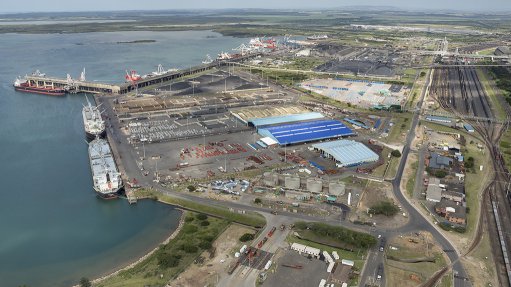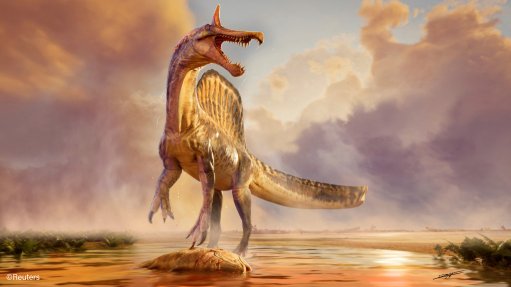South Africa's first National Biodiversity Offset Guideline published for implementation
South Africa’s first National Biodiversity Offset Guideline has been published for implementation and will serve as a means to minimise and offset biodiversity loss as a result of the negative impacts of unsustainable development on the country’s natural environment.
Biodiversity offsetting is only required if there remains a significant residual biodiversity impact after all other efforts have been made to avoid and minimise negative impacts on biodiversity, the Department of Forestry, Fisheries and the Environment (DFFE) says.
The National Biodiversity Assessment 2018 stated that South Africa’s biodiversity was declining and its ecosystems being degraded; therefore, there was a need for urgent action to slow down the loss and degradation of these natural assets.
Fundamental principles are spelled out in the guideline for offsetting biodiversity in South Africa. This includes guidance on when offsets are required, how to determine the requirements for biodiversity offsets and how to ensure that the actions taken are binding on the person liable for implementation, it adds.
Biodiversity offsetting, which forms part of the mitigation hierarchy envisioned in the National Environmental Management Act (Nema) principles, is a relatively novel practice in South Africa that has not always been implemented in an evidence-based and consistent manner. Therefore, the Guideline serves to provide a degree of consistency and standardisation in implementation.
The guideline will also serve as an intervention aimed at improved protection for, and appropriate management of, biodiversity. If done correctly, the biodiversity outcome, as a result of the intervention, counterbalances the negative impact of an activity on biodiversity, the department said.
The guideline applies to the terrestrial and freshwater realms, and not to offshore marine areas or estuarine ecosystems. That does not, however, mean that biodiversity offsetting is not required where development will have negative impacts on marine or estuarine ecosystems, the department noted.
The Guideline was published in the Government Gazette by Forestry, Fisheries and the Environment Minister Barbara Creecy on June 23, in terms of Nema.
The Guideline is not legally binding and does not replace the environmental authorisation process outlined in the Nema or the Environmental-Impact Assessment Regulations. It augments the legislation by guiding the implementation of Nema and the EIA Regulations in the context of mitigation of impacts on biodiversity and the use of biodiversity offsets, the DFFE said.
Competent authorities listed in terms of Nema will be required to consider the Guideline when taking decisions on environmental authorisation applications.
Article Enquiry
Email Article
Save Article
Feedback
To advertise email advertising@creamermedia.co.za or click here
Press Office
Announcements
What's On
Subscribe to improve your user experience...
Option 1 (equivalent of R125 a month):
Receive a weekly copy of Creamer Media's Engineering News & Mining Weekly magazine
(print copy for those in South Africa and e-magazine for those outside of South Africa)
Receive daily email newsletters
Access to full search results
Access archive of magazine back copies
Access to Projects in Progress
Access to ONE Research Report of your choice in PDF format
Option 2 (equivalent of R375 a month):
All benefits from Option 1
PLUS
Access to Creamer Media's Research Channel Africa for ALL Research Reports, in PDF format, on various industrial and mining sectors
including Electricity; Water; Energy Transition; Hydrogen; Roads, Rail and Ports; Coal; Gold; Platinum; Battery Metals; etc.
Already a subscriber?
Forgotten your password?
Receive weekly copy of Creamer Media's Engineering News & Mining Weekly magazine (print copy for those in South Africa and e-magazine for those outside of South Africa)
➕
Recieve daily email newsletters
➕
Access to full search results
➕
Access archive of magazine back copies
➕
Access to Projects in Progress
➕
Access to ONE Research Report of your choice in PDF format
RESEARCH CHANNEL AFRICA
R4500 (equivalent of R375 a month)
SUBSCRIBEAll benefits from Option 1
➕
Access to Creamer Media's Research Channel Africa for ALL Research Reports on various industrial and mining sectors, in PDF format, including on:
Electricity
➕
Water
➕
Energy Transition
➕
Hydrogen
➕
Roads, Rail and Ports
➕
Coal
➕
Gold
➕
Platinum
➕
Battery Metals
➕
etc.
Receive all benefits from Option 1 or Option 2 delivered to numerous people at your company
➕
Multiple User names and Passwords for simultaneous log-ins
➕
Intranet integration access to all in your organisation


















